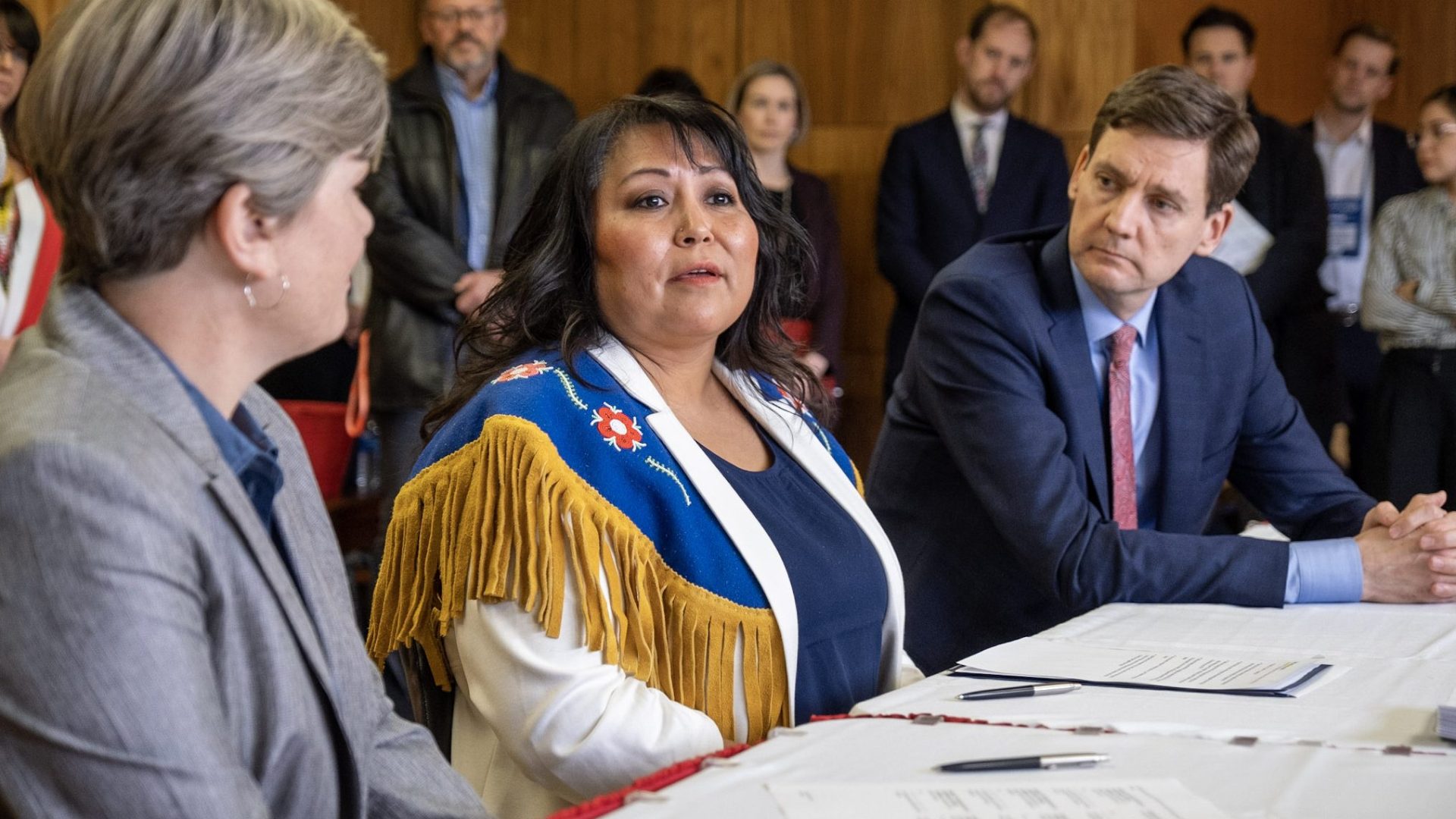At the 20th Annual B.C. Natural Resources Forum in Prince George, a special signing event took place between the Blueberry River First Nation and the province of B.C. The agreement, signed earlier in January, is historic and precedent-setting, not only for Blueberry but for B.C. and Canada.
In the coming months, different jurisdictions and industry leaders will be looking at this agreement and what it means for doing business in B.C., and how to approach free, prior, and informed consent for Indigenous communities.
This agreement is historic because it cements into precedence engaging with Indigenous communities through the entire lifetime of a project, including the start. If industry wants to do business in Blueberry there is a requirement to get the free, prior, and informed consent of the Nation. Many in B.C. should assume this to be the standard across the province as well.
This is also a very positive development for industry, considering it gives investors and project proponents a clear path forward on responsible resource development in B.C. While there are no requirements on existing projects within Blueberry, new projects being proposed will be required to engage with the Nation and B.C. as the province embarks on new land use plans within Blueberry’s territory.
This agreement stems from a monumental decision from the B.C. Supreme Court in June 2021. In Yahey v. British Columbia the court found B.C. breached its treaty commitment to Blueberry and infringed the Nation’s rights to carry out their traditional ways of life, as outlined in Treaty 8. More specifically, the province approved drilling and forestry operations without the consent of Blueberry.
Part of the agreement outlines a $200 million restoration fund along with plans to manage watersheds and oil and gas activities in parts of the Blueberry claim areas, which cover four per cent of BC.
“The main principle of our treaty was to ensure Blueberry was able to practice our way of life for as long as the sun shines, the grass grows and the rivers flow,” Chief Judy Desjarlais said during the announcement.
According to B.C.’s new premier, David Eby, the agreement sheds light on the province’s strategy towards reconciliation, not litigation. Instead of appealing the Supreme Court ruling, Eby, then as attorney general, decided to enter into negotiations with Blueberry. This shows a new way of doing business for governments working with Indigenous communities on resource development.
John Desjarlais, board chair of the Indigenous Resource Network, applauded the agreement, citing the importance of working together to achieve responsible resource development.
“We support this historic agreement and are encouraged by this approach of balancing protection of Indigenous rights and territory, and meaningfully respecting a Nation’s pursuit of economic development for the region.”
If industry wants to progress with Indigenous communities, there is a need to work together.
Industry has already been proactive in engaging with Indigenous communities. With the LNG Canada project, Indigenous people were engaged early in the process and have agreed to significant benefit agreements and investments into the community. Some of these investments include Indigenous procurement and contracts equaling millions of dollars. These contracts go directly to Indigenous businesses, which leads to more Indigenous people getting employed and more investments into the community.
The agreement between the Blueberry and the province of British Columbia is a positive step forward for industry working with Indigenous communities. It sets a precedent for engaging with Indigenous communities through the entire lifetime of a project, including the start, and gives investors and project proponents a clear path forward on responsible resource development in B.C.
This approach balances the protection of Indigenous rights and territory, and meaningfully respecting a Nation’s pursuit of economic development. This agreement will be impactful, not only in B.C, but across Canada.
Zachary Authier is a communications coordinator with the Indigenous Resource Network.
The unaltered reproduction of this content is free of charge with attribution to Canadian Energy Centre Ltd.
